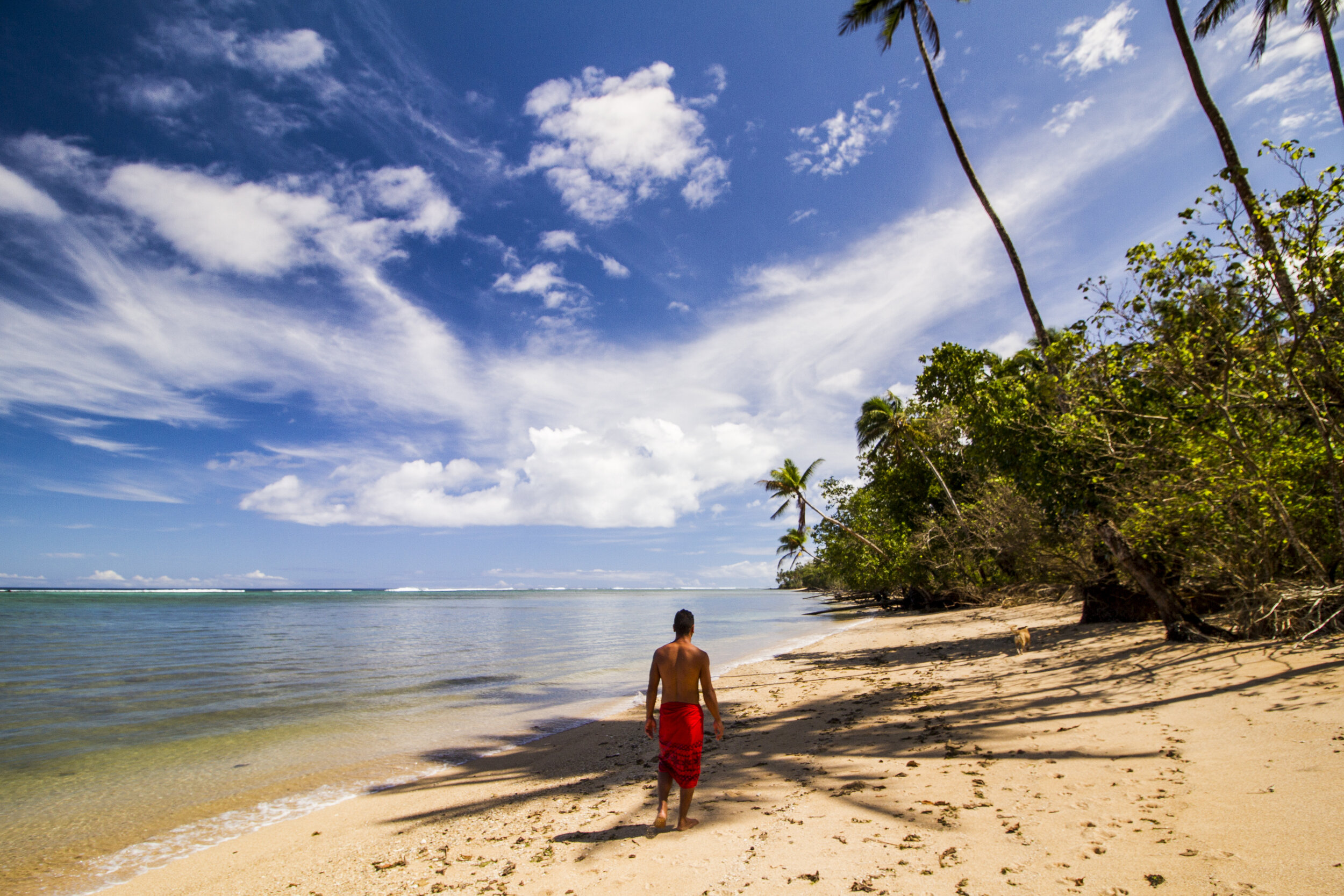We are the first generation to feel the sting of climate change, and we are the last generation that can do something about it
Tarawa Ieta
Climate induced migration will be the primary driver for global population movements in the next decade. Living on the outer island of Abaiang, in the South Pacific country of Kiribati, I saw first-hand the devastating toll climate change was having on these vulnerable populations. Rising sea levels, desalination of the water, eroded land, and extreme weather events will make it so the country will no longer be able to support human inhabitants in the next 50-75 years.
Adaptation, Mitigation, and Resilience
Pacific Island Countries are facing some of the most immediate and visible impacts of climate change. These vulnerable communities will become the world's first, true, ecological refugees. My research and work includes developing community adaptation strategies that use traditional knowledge to promote resilience. I aim to assess levels of success in safeguarding communities in the face of climate change, providing a series of lessons that will benefit donors, communities, and practitioners in enhancing adaptive capacity.
Recent Role(s)
Resilience Technical Advisor, USAID, Pacific American Fund (PAF) Project (2021-Present)
Across 12 Pacific Islands Countries, one of four advisors guiding the selection of $21M worth of grants in the areas of environment; water, sanitation, and hygiene (WASH); climate change adaptation; and basic education - addressing additional complementary technical focus areas including disaster resilience, the secondary effects of COVID-19, private sector competitiveness and economic growth, access to health services, and democratic governance. Following the selection process, providing targeted technical assistance and capacity-building support to grantees directly.
Climate Risk Advisor, USAID, Climate Integration Support Facility (CISF) (2017-2019)
Independently wrote, secured win, and provided overall coordination and technical leadership on climate risk assessments and screenings for a global 5-year $50M BPA. Oversaw and managed technical and support staff to deliver trainings, conduct risk screenings, and ensure harmony of approach and deliverables providing analytical support for Climate Risk Management (CRM).
Climate Change Advisor, USAID, Pacific Climate Change Adaptation (PACAM) Project (2014-2017)
Member of the Grants Review Committee (GRC), working with the Chief of Party and Grants Review Board (GRB) to evaluate PACAM Fund Cycles 1-3 project applications and concept notes for Cycle 3. Assessed robustness and feasibility of climate change adaptation activities and proposed recommendations for over 300 grant applications.
Articles
“A review of community-based climate change adaptation projects in the Pacific”, UNDP, 2013-2014. Contributing author to literature review, providing desktop research on types of community-based climate change adaptation projects that have been implemented in the Pacific
“Climate-induced migration in the Asia-Pacific region: Are climate refugees real”, University of Oxford, 2013. Discussed the plight of Pacific Island Countries (PICs) and the impacts of climate change
“Climate change and development”, University of Denver, 2012. Hosted by the Josef Korbel School of International Studies. Discussed the impacts of climate change on development and how communities need to adapt as they move away from eco-system-dependent livelihoods to ones that are more climate-resilient
Assessments
Climate change framework methodology and training on the use of vulnerability and risk assessments and selection of adaptation strategies, Architecture and Engineering IDIQ, USAID, 2014-2015
Effects of potential climate change adaptation activities on PIC, Coastal Community Adaptation Project (CCAP), USAID, 2014
Feasibility Study, Pacific Women Shaping Pacific Development, DFID, 2014




